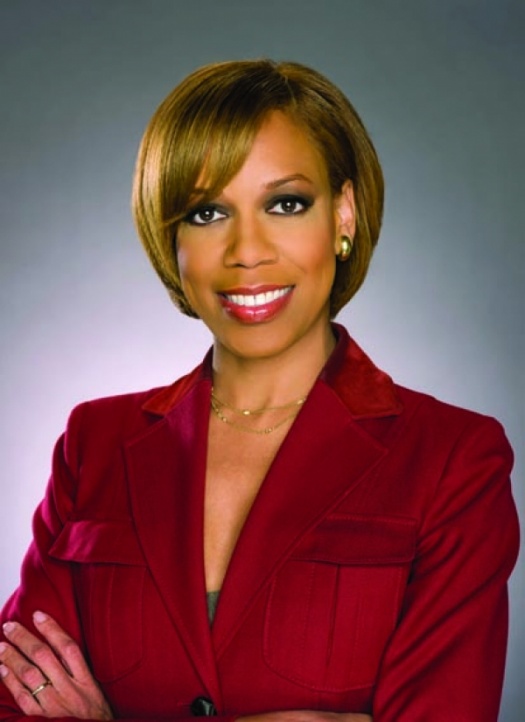
Entrepreneurship. It is a challenging, sometimes overwhelming, always scary but yet potentially gratifying and profitable experience for those willing to take a leap of faith to drive their own economic success. But with the economy in shambles, a new bra
Entrepreneurship. It is a challenging, sometimes overwhelming, always scary but yet potentially gratifying and profitable experience for those willing to take a leap of faith to drive their own economic success. But with the economy in shambles, a new brand of entrepreneur is destined to emerge on the scene, research shows. They won’t start businesses out of a burning desire to become an entrepreneur or to pursue their lifelong dream. They will become entrepreneurs essentially out of necessity.
With record job losses in November and more layoffs to come in both the public and private sectors, particularly in the professional services arena where many a wannabe entrepreneur dwell, starting a business might represent the best hope for Black professionals hoping to sustain or exceed their current incomes.
As the economic downturn of 2001 proved, African Americans–including college-educated professionals–tend to experience higher rates of unemployment than their white counterparts. They also remain jobless longer and are less likely to recapture previous income levels once they do find work.
This downturn is no different. The national unemployment rate for African Americans has shot up to 11.2 percent, compared to 5.8 percent for whites and 8.5 percent for Hispanics, according to the U.S. Bureau of Labor Statistics.
For African Americans, “necessity” entrepreneurship occurs more frequently whether the economy is good or bad. According to the 2007 Global Report on High-growth Entrepreneurship by the Global Entrepreneurship Monitor, 70 percent of African Americans said they were motivated to turn to entrepreneurship because they believe they were denied a job because of their race and ethnicity. Necessity, therefore, can take many forms.
The report also found that, despite the economy, African Americans continue to outpace members of other racial and ethnic groups at starting new businesses. However, the majority of these businesses are lifestyle businesses that provide a comfortable income for the owners, not high-growth enterprises that create wealth and jobs in the African American community.
The truth is the majority of entrepreneurs don’t want the responsibility of owning a big business. They just want to create a nice job for themselves, gain a little autonomy over their careers and maintain a comfortable lifestyle. Few among them possess the high-growth mindset like Amy Hilliard did when she founded ComfortCake in 2001.
Hilliard was working full time as a senior level marketing executive, a job for which she was uniquely qualified but did not quench her insatiable thirst for entrepreneurship, when she drew up her first business plan for ComfortCake, an idea sparked by a secret family recipe.
“I always wanted to be an entrepreneur,” said Hilliard, who manufactures exquisite pound cakes for customers that include United Airlines and Chicago Public Schools and that are sold in some 1,000 retail stores. “I felt hampered by corporate culture. I wanted to operate in a maverick type of way.”
Hilliard is one of 15 business owners striving to take her enterprise to the next level in the Chicago Urban League’s nextONE entrepreneurship program. Hilliard says she founded her business to be high growth from the start, but financing was difficult to obtain in these early stages.
Today, Hilliard is on her way to becoming a high-growth business. For me, the question becomes, “How do we convince other African American entrepreneurs to embrace that high-growth mindset?” The educational programs are out there to support emerging minority firms. Granted, we’re still working on the financing piece, but new resources, such as micro lending and private equity financing, are available today. With additional support from government-funded programs, more minority-owned firms can reach their next level of business success.
Why is it so important for small businesses to succeed? For one, small businesses account for 50 percent of the payroll in the private sector. Economists agree that small businesses, not the Fortune 500 companies, will be the ones creating the jobs and, ultimately, making the biggest impact toward shoring up the economy.
Blacks are more likely to hire other Black people, therefore supporting Black-owned businesses–through education and financing, as well as consumer spending–has the potential to economically empower entire communities.
Great companies aren’t built in a day, which is why the Urban League offers workshops and counseling services for startup and lifestyle entrepreneurs, too. But I encourage minority business owners to dream big and to not be discouraged by past barriers. These are tough times, sure, but it’s still an awesome time to start a business.
Cheryle R. Jackson is the president of the Chicago Urban League. She can be reached at president@thechicagourbanleague.org.
Copyright 2008 Chicago Defender. All rights reserved. This material may not be published, broadcast, rewritten, or redistributed.

